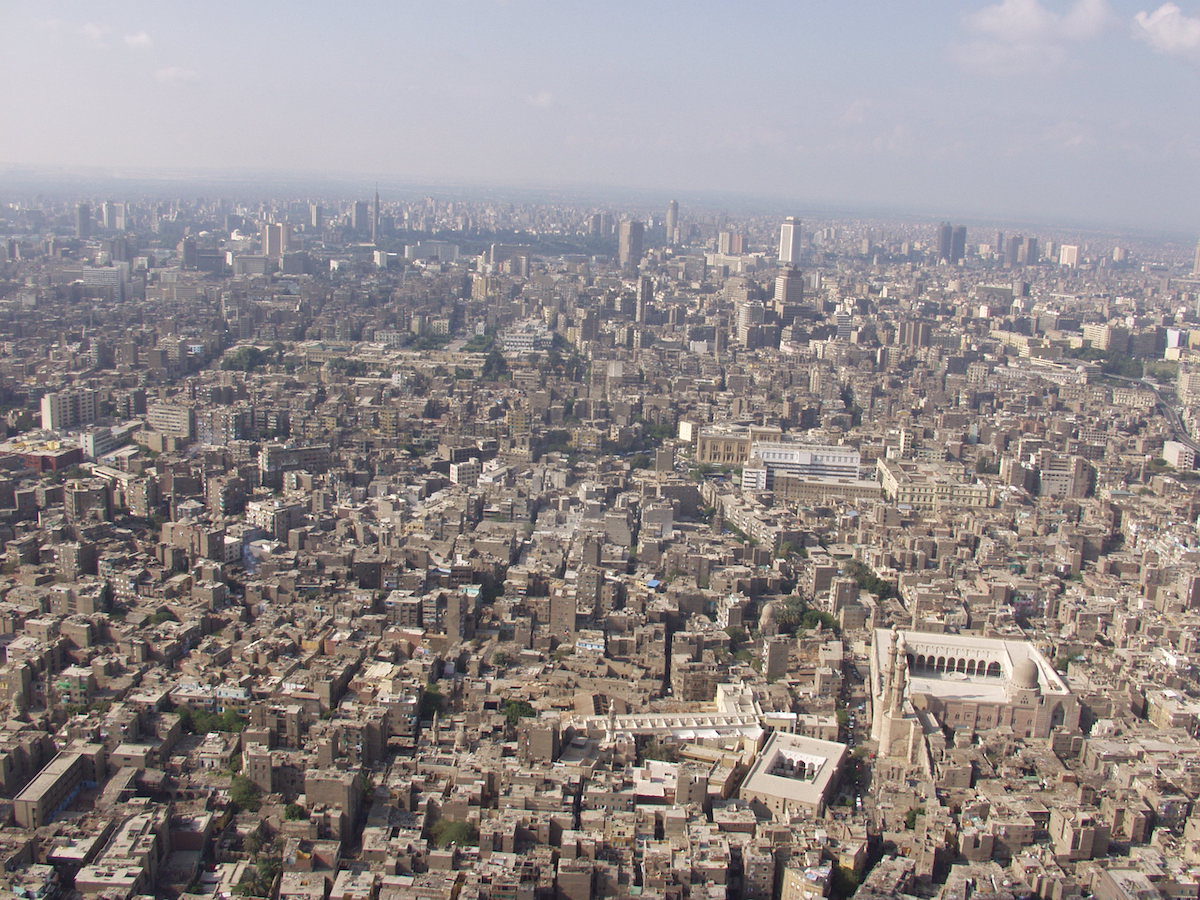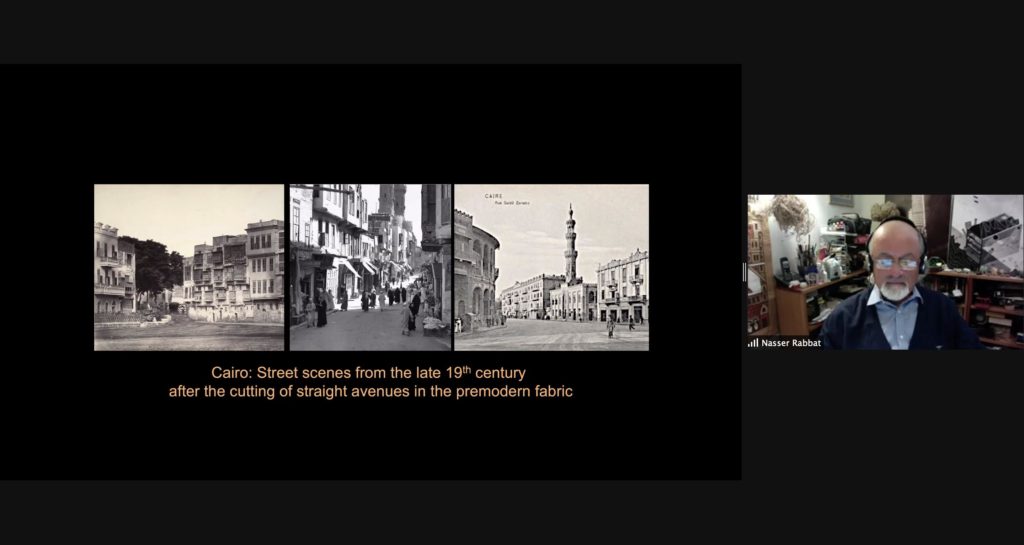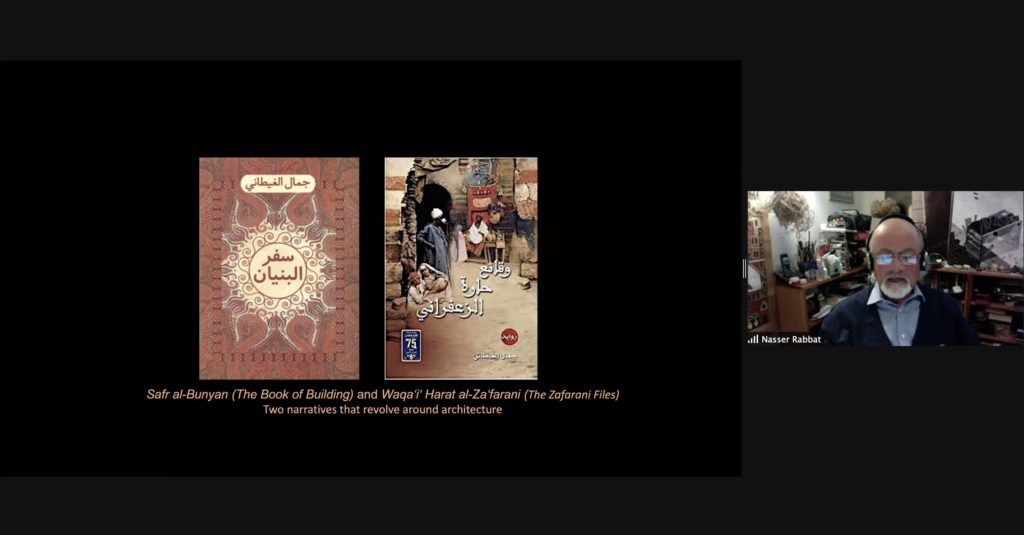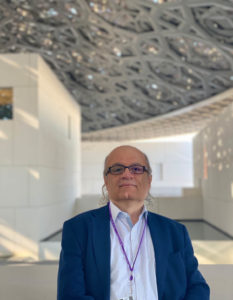Aga Khan Program Lecture: Nasser Rabbat, “History’s Currency: The Afterlife of al-Maqrizi’s Khitat”

Aerial view of Cairo from Bab Zuwayla toward the west, Courtesy of the Aga Khan Historic Cities Support Programme-Egypt
The GSD is pleased to present a series of talks and webinars broadcast to our audiences via Zoom.
Event Description
This lecture offers a reading of the stages of modernity in Egypt through a medieval lens. It explores how a leading urban history book, al-Maqrizi’s Khitat (written 1415-42), came to absorb and articulate the country’s encounters with colonialism, modernization, Orientalism, historical academicism, nationalism, pan-Arabism, and authoritarian capitalism. Appropriated by the Savants of the French Occupation (1798-1801) in their monumental Description de l’Égypte, the Khitat became the go-to source for anyone studying Cairo. ‘Ali Mubarak, an engineer/minister who Haussmannized Cairo in the 1860s, used it to write his own paean to the remodeled city. K. A. C. Creswell, a British officer turned Orientalist architectural historian, relied on it to anchor his pioneering architectural history of Egypt. Egyptian nationalist historians deployed it as their authenticating native referent. Novelists and poets, like Gamal al-Ghitani and Naguib Surur, assimilated it as a voice of the undying spirit of Egypt and a parable of resistance to corruption and oppression. Eventually, the book acquired a transhistorical sheen that embodied the epistemic and political changes in Egypt from the early 19th century to the present.


Speaker
 Nasser Rabbat, RF ’12, is the Aga Khan Professor and the Director of the Aga Khan Program for Islamic Architecture at MIT. His interests include the history and historiography of Islamic architecture, medieval urbanism, modern Arab history, contemporary Arab art, and post-colonial criticism. He has published several books, most recently ‘Imarat al-Mudun al-Mayyita: Nahwa Qira’a Jadida lil-Tarikh al-Suri (The Architecture of the Dead Cities: Toward a New Interpretation of the History of Syria) (2018) and an online book, The Destruction of Cultural Heritage: From Napoléon to ISIS, co-edited with Pamela Karimi (2016).
Nasser Rabbat, RF ’12, is the Aga Khan Professor and the Director of the Aga Khan Program for Islamic Architecture at MIT. His interests include the history and historiography of Islamic architecture, medieval urbanism, modern Arab history, contemporary Arab art, and post-colonial criticism. He has published several books, most recently ‘Imarat al-Mudun al-Mayyita: Nahwa Qira’a Jadida lil-Tarikh al-Suri (The Architecture of the Dead Cities: Toward a New Interpretation of the History of Syria) (2018) and an online book, The Destruction of Cultural Heritage: From Napoléon to ISIS, co-edited with Pamela Karimi (2016).
Prof. Rabbat worked as an architect in Los Angeles and Damascus and held academic and research appointments in Cairo, Granada, Rome, Paris, Abu Dhabi, Munich, and Bonn. He regularly contributes to Arabic newspapers, serves on the boards of various organizations and consults with international design firms on projects in the Islamic World. In recent years, he began researching and publishing on immigration, refugees, heritage conservation, and destruction and reconstruction.
Follow Nasser Rabbat on Twitter.
How to Join
The event will also be live streamed to the GSD’s YouTube page. Only viewers who are attending the lecture via Zoom will be able to submit questions for the Q+A. If you would like to submit questions for the speaker in advance of the event, please click here.
Anyone requiring accessibility accommodations should contact the Public Programs Office at (617) 496-2414 or [email protected].
#GSDEVENTS